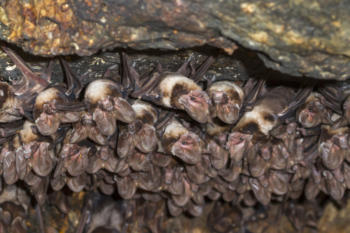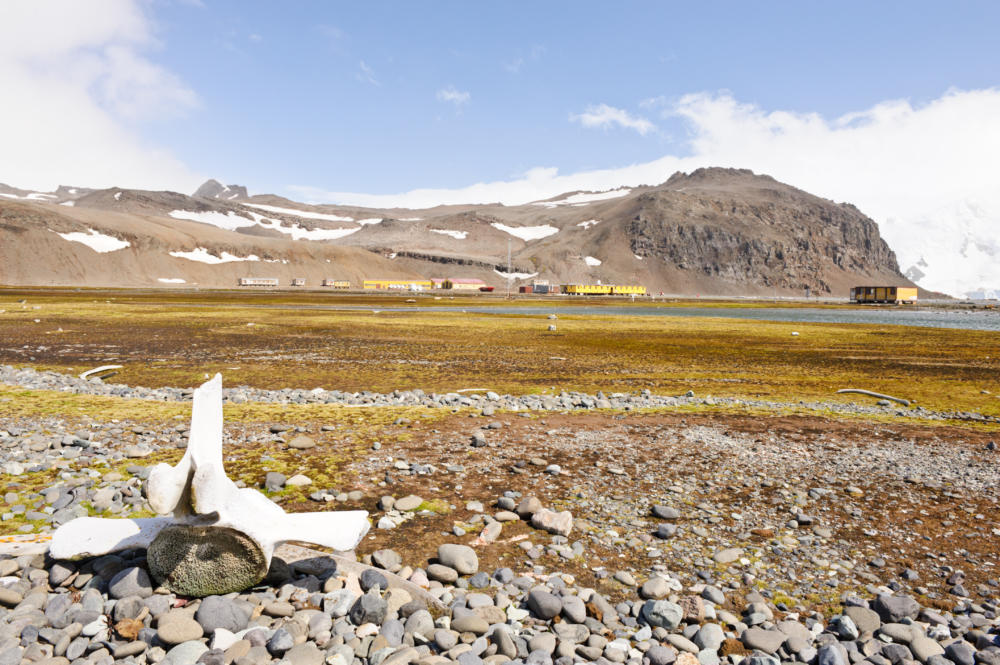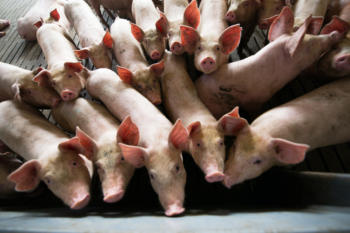New microbes found in a sick pig, pickled vegetables and Antarctica
Posted on April 9, 2019 by Laura Cox
Each month, the Microbiology Society publishes the International Journal of Systematic and Evolutionary Microbiology (IJSEM), which details newly discovered species of bacteria, fungi and protists. Here are some of the new species that have been discovered and the places they’ve been found.

On the seafloor, diverse biological communities form around hydrothermal vents. These vents spew out mineral-rich water which has been heated by the Earth’s core. Microbes are able to use these minerals as an energy-source, and life thrives in the surrounding waters. During a study into the microbial diversity of the environment around hydrothermal vents in the Pacific Ocean, researchers from China discovered a new species of bacteria. This new species, which they named Staphylospora marina has adapted to its unique environment, and thrives in temperatures between 55 and 65°C.
A new, pink bacterium has been collected from bat droppings on the floor of a cave in Mexico. The new species of bacteria was found by French researchers investigating the microbial composition of bat guano. This new species was named Filibacter tadaridae, collected from a colony of Mexican free-tailed bats.
On the floor of a pond being used to grow sea-cucumbers, a new species of yellowish-green bacteria has been discovered by researchers. The researchers were conducting a study into microbial diversity when they identified the new bacteria, which they named Alteromonas sediminis.
Zha-Chili is the pickled stem of a mustard plant, which has been fermented in red chili paste. During an investigation of traditional fermented foods, where 40 samples of Zha-Chili were tested, researchers from China discovered a new species of bacterium in Zha-Chili, which they named Lactobacillus zhachili. This was not the only new species isolated from a fermented vegetable this month; researchers in Taiwan discovered Lactobacillus suantsaii in suan-tsai, a fermented mustard green originating from Taiwan.

A research station in Antarctica, near Fildes Peninsula
The Fildes Peninsula is an area in northern Antarctica. This protected area is home to several important planetological sites, harbouring fossils of plants and animal footprints which date back as far as 100 million years. On Jasper beach, adjacent to Fildes Peninsula, researchers have found a new species of bacteria. This greyish-yellow bacterium was isolated from a sediment sample collected on the beach and named Amphritea opalescens.

Researchers in China have discovered a new species of bacteria in a sick pig. The bacterium, which they named Suicoccus acidiformans, was collected on a large pig farm from a pig with diarrhoea. This novel bacterium was collected from the pig’s lymph nodes, and was named after the Latin world for hog, suis. This new species is the first in its genus and grows in pairs or clusters when grown on agar in the lab.
A new species of bacterium with anti-fungal properties has been discovered in a soil sample collected from near a mining area. The new species, which researchers named Streptomyces fodineus, thrives in acidic soil and forms grey colonies and was found to produce a substance called actinorhodin, which is widely used in clinical antimicrobials.
The full papers describing these species are available to journal subscribers, but the abstracts are free to read. Articles can also be purchased individually with the pay-per-view option.

